Current research projects
ADVENT (Addressing the Valuation of Energy and Nature Together)
Funded by NERC, ADVENT seeks to explore future UK low-carbon energy pathways and quantify what they would mean for natural capital and ecosystem services. The project involves the development of a computer-based modelling platform to determine the combined impacts of all elements of an energy pathway on natural capital and ecosystem service provision (e.g. visual impact, biodiversity, soil carbon) allowing for the whole-system evaluation of energy futures.
Project duration: June 2015 – June 2020
Exeter contact: Gemma Delafield
Exeter researchers: Prof Brett Day, Prof Ian Bateman and Dr Greg Smith
Find out more on the UK Energy Research Centre website.
ÆMORE (Acoustic Emission Technology for Environmental and Engineering Health Monitoring of Offshore Renewable Energy)
Funded by NERC, ÆMORE is a world-first application of acoustic emission techniques for combined environmental and engineering condition monitoring in offshore marine environments. The project focuses on the Wave-Energy Converter tested in Falmouth Bay (UK) and uses several years of measurements, before installation, at installation and during energy production. Systems Engineering and Assessments (SEA) Ltd are an industry partner on this project.
Project duration: 2014 – 2018
Exeter contact: Dr Philipp Thies
Exeter researchers: Dr Lars Johanning
ARCoES (Adaptation and Resilience of Coastal Energy Supply)
This EPSRC/ARCC funded project aims to identify the challenges facing the future security of the UK nuclear energy sector and coastal energy supply in the Northwest region as a result of a changing climate. ARCoES is focusing on developing a decision-support tool that will enable sustainable coastal energy. We aim to identify how coastal power stations, substations and distribution grid can be adapted to future climate change impacts and thus become more resilient.
Exeter contact: Dr Karyn Morissey
Find out more on the ARCoES website
 Autonomous Robotic Intervention System for Extreme Maritime Environments (ARISE)
Autonomous Robotic Intervention System for Extreme Maritime Environments (ARISE)
The Autonomous Robotic Intervention System for Extreme Maritime Environments (ARISE) project will apply artificial intelligence to result in safer and more efficient operation, maintenance and inspection of offshore assets. This joint feasibility project between Autonomous Surface Vehicles (ASV) Ltd and the University of Exeter, funded by Innovate UK, brings together leading industrial and R&D expertise to develop an innovative intervention system for the inspection and intervention in hazardous offshore environments in order to make a step change to unmanned marine operations. The project will explore, address and test specific industrial use applications in the offshore wind and offshore oil and gas sectors, aiming to make operations safer and more efficient.
Project duration: Dec 2017-Nov2018
Exeter contact: Dr Philip Thies
Find out more on the ARISE website
 ASSIST (Attitudes to Shale gaS In Space and Time)
ASSIST (Attitudes to Shale gaS In Space and Time)
The ASSIST (Attitudes to Shale gaS In Space and Time) project is led by academics at Exeter, Stirling, Edinburgh, Heriot Watt and Cardiff Universities that will shed light on how public responses to shale gas unfold over time at national, regional and local levels.
Protests about hydraulic fracturing ('fracking') of shale gas have taken place in several countries including the UK. Therefore, understanding public attitudes and community responses to shale gas development is a key social science research area, with relevance for communities directly affected by shale gas projects, for developers' 'social license to operate' and for UK policy on energy and climate change.
Project duration: 3 years
Exeter contact: Patrick Devine-Wright
Find out more on the UKRI website
AURES2 (Auctions for Renewable Energy Support)
AURES is a European research project on auctions for renewable energy support in the EU. The general objective of the project is to promote an effective use and efficient implementation of auctions to improve the performance of electricity from renewable energy sources in Europe. The project is funded by EU Horizon 2020 and many different EU collaborators.
Project duration: Nov 2018 - Oct 2021
Exeter contact: Dr Bridget Woodman
Exeter researchers: Dr Oscar Fitch-Roy
Find out more on the AURES website
 Blue Health
Blue Health
The BlueHealth project brings together a multi-disciplinary consortium to investigate how aquatic environments affect the health of Europe’s population.
Project duration: – June 2020
Exeter contact: J.Grellier@exeter.ac.uk
More info on the Blue Health website.
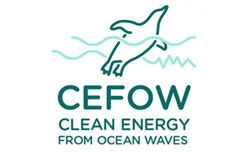 CEFOW
CEFOW
CEFOW aims to deploy advanced multiple wave energy converters (WECs) with improved power generation capability and demonstrate that they are able to survive challenging sea conditions over a period of several years. In addition, a realistic roadmap will be developed for cost reduction to bring the levelised cost of wave power down nearer to commercially viable level in the near future. Collaborators include Wello Oy, Wave Hub Ltd and University of Plymouth, funded by EU Horizon 2020.
Project duration: Jun 2015 – May 2031
Exeter contact: Dr Matthew Witt
Find out more on the CEFOW website
 CEReS
CEReS
CEReS (Co-processing of coal mine and electronic wastes - novel resources for a sustainable future)
The EU RFCS-Funded CEReS project will embark on the co-processing of acid mine drainage and electronic waste streams to produce metals and other valuable products, while eliminating their environmental impact at the same time. This industrial ecology approach is key to supporting a circular economy while securing the sustainable supply of critical raw materials. The role of our group in this project is to evaluate the environmental sustainability of the CEReS process in comparison to the status quo.
Project duration: Jul 2016 – Jun 2019
Exeter Contact: Dr Victor Kouloumpis
Exeter researchers: Dr Chris Bryan, Dr Ben Williamson and Dr Xiaoyu Yan
Find out more on the CERES website.
 Cornwall Local Energy Market (CLEM)
Cornwall Local Energy Market (CLEM)
CLEM is a 3-year trial led by Centrica and part funded by the EU’s regional Development Fund to create the UK’s first local energy market. The project will develop a local marketplace for flexible demand, generation and storage to help optimise capacity on the local distribution network and enable more renewable connections to be made across different sectors.
Project duration: Jan 2017 – Mar 2020
Exeter contact: Dr Bridget Woodman
Exeter researchers: Rachel Bray, Prof Catherine Mitchell & Dr Peter Connor
Find out more on the Centrica website
Concentrated Photovoltaic (CPV) Assisted Tandem Artificial Photosynthe:c (AP) Device for Effective Solar to-Chemical Conversion
This project aims to develop a prototype CPV-AP device using metal ferrites with over 10% solar to hydrogen conversion resulting in sustainable and transportable zero emission solar fuel from water splitting. The project is part of the UK India Education Research Initiative (UKIERI).
Project duration: Apr 2017 -
Exeter contact: Govinder Singh Pawar
Find out more on the solar energy research website
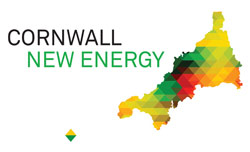 Cornwall New Energy
Cornwall New Energy
The aim of this project is to support small and medium-size enterprises in Cornwall and the Isles of Scilly, by providing consultancy and diagnostic advice, to achieve greater energy security, and enable new energy products to be brought to market. Funded by the EU’s Regional Development Fund, the research team will design and implement a demonstration micro-grid test facility to validate innovative solutions explored by local energy enterprises and academic research teams at the University of Exeter. This project is in partnership with PRP, Community Works CIC, Brenational Solar Centre and Community Energy Plus.
Project duration: Sept 2017 – Aug 2020
Exeter contact: Mark Briers
Exeter researchers: Dr Mohammad Abusara, Dr Peter Connor, Dr Xioahong Li, Richard Cochrane, Hisham Mahmood and Dr Saptarshi Das
Find out more on the Cornwall New Energy website.
 Demonstration of a Community-Wide Renewable Energy Scheme
Demonstration of a Community-Wide Renewable Energy Scheme
This research aims to demonstrate the feasibility of community-based renewable energy schemes. By utilising renewable energy sources and thermal energy storage in a dedicated hot water tank it is hoped that 3,500 new homes can be supplied with clean, sustainable heat. If successful, this could prove the potential of renewables driven community energy schemes and pave the way for similar projects around the UK.
Project duration:
Exeter contact: Dr Xiaohong Li
Exeter researchers: Adeline Loh, Shivangi Sharma and David Trudgeon
Find out more on the energy storage website
Development of the Oxygen Electrode for Alkaline Systems
This project focuses on the synthesis and characterisation of electrocatalysts such as metal oxides to relate their physiochemical properties to electrochemical activity. The understanding of this relationship can then be used to enhance performance (i.e. durability, lifetime, efficiency, and cost) in fuel cells and large scale energy storage in metal-air secondary batteries.
Exeter contact: Adeline Loh
Exeter researchers: Dr Xiaohong Li, Shivangi Sharma and David Trudgeon
Find out more on the energy storage website
 Dynamic Load Reduction and Station Keeping Mooring System for Floating Offshore Wind
Dynamic Load Reduction and Station Keeping Mooring System for Floating Offshore Wind
The Intelligent Mooring System (IMS) will result in substantial reductions to LCOE for floating offshore wind generation. It is an industry project led by Teqniqa Systems in collaboration with the University of Exeter and DNV-GL. The IMS will allow for a much wider range of response characteristics from the floating platform delivering unique mooring capabilities which are highly desirable to end users.
Project duration: Oct 2017 – Feb 2020
Exeter contact: Dr Philipp Thies
Find out more on the UKRI website
E-IPB (Embedded Systems for Integrated Photovoltaics in Rural Buildings)
The E-IPB project is jointly funded by Innovate UK and China’s Ministry of Science and Technology. It is a collaboration between the University of Exeter, University of Nottingham, Sichuan University (China), and industry. This project will demonstrate technical and commercial viability of lightweight glass on glass optical device integrated PV systems with a targeted efficiency enhancement of 2%. This will be achieved through an integrated model for different low cost PV technologies, manufacturing new prototypes and integrating/retrofitting the system with building envelopes.
Project duration: 2017 -2019
Exeter contact: Dr Xiaoyu Yan
Exeter researchers: Atta Ajayebi, Robert Pell, Yang Qu, Emily Stebbings and Tianduo Peng
Find out more on the 4E website
E2C (EU Interreg project: Electrons to high value Chemical products)
The overall objective of the project is to stimulate investment in and implementation of Power-to-X technologies by developing innovative direct and indirect conversion processes for the chemical industry towards higher TRL’s, while making use of renewable electricity and lowering the carbon footprint. With these technologies, valuable fuels and platform chemicals can be produced from renewable raw materials while decreasing costs and increasing flexibility. The aim is to develop at least two pilot demonstrators at TRL 6 – 7 and two bench scale pilot installations at TRL 4 with supporting feasibility evaluations, thereby lowering the risks of investment for companies, especially SME's, and positioning the 2 Seas region as an innovation leader in Power-to-X sustainable technologies. The project obtained the financial support from European Regional Development Fund (ERDF).
Project duration: 01 July 2018 - 31 December 2021
Main contact: Prof Xiaohong Li
Other Exeter researchers: Prof Tapas Mallick, Dr Asif Tahir & Dr Habib Ullah
Find out more on the Interreg website
EnergyRev
‘EnergyRev’ is an £8m 3.5 year research project about local energy systems commissioned under the Industrial Strategy Challenge Fund’s Prospering from the Energy Revolution programme. The consortium consists of 29 investigators across 22 institutions led by Strathclyde University. Funding to Exeter is 305k and will fund a postdoc to work on the project for nearly 3 years, supervised by Patrick Devine-Wright who will lead the Work Package on ‘User engagement, preferences and behaviour’ working with colleagues in Leeds, Oxford Brookes, UEA and ARU.
Project duration: 2019 – 2021
Exeter contact: Prof Patrick Devine-Wright
Find out more on the Gov.uk website.
Enhanced Phase Change Material for Temperature Regulation of Concentrated Photovoltaic Systems
Phase change materials (PCMs), used as latent heat thermal energy storage with concentrated photovoltaic (CPV) systems could increase the overall system efficiency by two means. By acting as a heat sink for dissipating heat by acting as a heat storage system for the CPV tandem thermal devices.
Exeter contact: Shivangi Sharma
Find out more on the energy storage website
Environmental Activism within Energy Companies
This project empirically traces environmental activism within two energy companies, focusing on how green activists are employed, managed and cultivated to bring about a transition of the energy system.
Exeter contact: Prof Steffen Boehm
 Food and the Circular Economy
Food and the Circular Economy
This 2-year research project funded by EPSRC and led by the University of Exeter Business School will explore how small and medium sized enterprises (SMEs) in the food and beverage manufacturing industry (FBMI) of the South West of England can move towards the circular economy (CE), the benefits of the transition and what helps or hinders progress.
Project duration: Nov 2016 – Oct 2018
Exeter contact: Prof Steffen Boehm
Exeter researchers: Prof Mickey Howard, Dr Navonil Mustafee, Prof Dragan Savic, Dr Lydia Vamvakeriduo-Lyroudia, Prof Matt Lobley and Dr Dan Eatherley
Find out more the Circular Food website
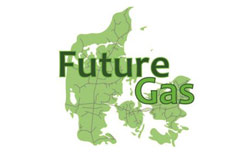 FutureGas
FutureGas
The FutureGas project, Funded by Innovation Fund Denmark and led by DTU in Denmark is investigating the future of the Danish gas system in the context of decarbonisation. The Energy Policy Group at Exeter is providing a comparative UK case study for the FutureGas project and Catherine Mitchell has been a visiting professor at DTU over parts of the project.
Project duration: Apr 2016 – Dec 2018
Exeter contact: Prof Catherine Mitchell
Exeter researchers: Richard Lowes
Find out more on the FutureGas website
 Gender/Energy
Gender/Energy
The Gender/Energy project is evaluating gender balance in the UK energy research portfolio. Addressing the challenge of decarbonisation requires that the potential and expertise of all energy researchers is mobilised. Despite this there is evidence that, globally, women are under-represented in research and innovation. In order to establish and explore if women are under-represented in UK energy research this project will carry out analysis of gender balance in the UK energy research portfolio, engage with female energy researchers across career stage regarding their lived experience and review current and potential approaches to addressing gender imbalance. A report will be produced which provides an evidence base to explore the issues, discusses the problems, reviews current solutions, highlights existing good practice, and makes recommendations. The project runs from September 18 – April 19 and is funded by the UK Energy Research Centre as part of the Whole Systems Networking Fund.
Project duration: 6 months
Exeter contact: Jess Britton
 Heat, Incumbency and Transformations HIT
Heat, Incumbency and Transformations HIT
Heat, Incumbency and Transformations (HIT) is a 24-month UKERC funded project allocated through the highly competitive UKERC flexible fund. We are investigating the impact of incumbency on the UK's potential transformation to a zero carbon heat system.
Project duration: Apr 2016 - May 2018 (extended)
Exeter contact: Dr Bridget Woodman
Exeter Researchers: Richard Lowes and Matthew Clark
Find out more on the HIT website
HoSEM (Household-Supplier Energy Market)
In partnership with Bristol and Leicester Universities and funded by EPSRC, this project aims to support peer-to-peer household level energy trading by developing a novel transparent platform for market participants, establish a scientific basis for factors that would foster trust between traders and study the social and economic implications of such a market. This project will help the businesses, regulators, and households gain an understanding of this potential, and get ready to transition into and engage with this changing market.
Project duration: Oct 2017 – Mar 2019
Exeter contact: Prof Mark Levine
Find out more on the EPSRC website
Hydrogen Production by Alkaline SPE Electrolysers
This research aims to develop alkaline SPE electrolysers which utilise non-precious metal catalysts and give lower over potentials for oxygen evolution compared to acidic systems, whilst maintaining improved efficiency. The focus of the work is on developing efficient, stable catalysts for both the anode and cathode, fabricating the nanostructures of the chosen catalysts to maximise active surface area, selecting suitable corrosion-resistant substrates, membrane development and design of the cell.
Exeter contact: Dr Xiaohong Li
Find out more on the energy storage website
 ICARUS
ICARUS
ICARUS is a four-year project funded in the frame of H2020 which is made up of 18 Partner Institutions from 9 European countries all with multidisciplinary expertise and experience in intersecting and complimentary research in research areas related to the climate and the environment and their interactions with health and wellbeing. The high scientific quality of the ICARUS team is based on the extensive and long-term experience of the partners, which include leading scientists and risk health research institutes in Europe.
Project duration: May 2016 – Apr 2020
Exeter contact: Dr Tim Taylor
Exeter researchers: Dr Anna Maccagnan
Find out more on the ICARUS website
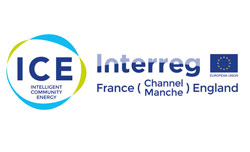 ICE (Intelligent Community Energy)
ICE (Intelligent Community Energy)
Intelligent Community Energy (ICE), funded through the Interreg VA Channel programme, aims to develop and promote innovative smart energy solutions for islands or remote communities. The project will consider aspects such as the regulatory environment, available renewable energy resources, existing energy demand and public opinion to design and implement smart grid solutions for the pilot sites and develop a transferable methodology that can be applied in other remote locations.
Project duration: Sep 2016 – Aug 2020
Exeter contact: Dr Peter Connor
Exeter researchers: Prof Patrick Devine-Wright, Dr Oscar Fitch-Roy & Dr George Matthew
Find out more on the ICE website
 IGov 2 (Innovation and Governance for Future Energy Systems)
IGov 2 (Innovation and Governance for Future Energy Systems)
IGov 2 is focussed on energy system change and its dimensions. The research is seeking to understand the reasons for some of these changes, the context in which they are happening, and how actors across the whole energy system are reacting and adapting to this change.
Project duration: Oct 2016 – Oct 2019
Exeter contact: Richard Hoggett
Exeter researchers: Prof Catherine Mitchell, Dr Matthew Lockwood, Helen Poulter, Jess Britton, Anthony Froggatt and Matthew Clark
Find out more on the IGov 2 website
 IMP@CT (Integrated Modular Plant and Containerised Tools for Selective, Low-Impact Mining of Small High-Grade Deposits)
IMP@CT (Integrated Modular Plant and Containerised Tools for Selective, Low-Impact Mining of Small High-Grade Deposits)
The EU H2020-funded IMP@CT Project proposes a solution that develops a new switch on-switch off (SOSO) mining paradigm to improve the viability of many critical metal and other small complex deposits. The whole systems approach that we have adopted to realise the SOSO mining paradigm centres around technological innovations in mining equipment design and mine planning that would reduce the feasibility studies required, throughput of extracted material, infrastructure, land use, resource consumption and waste.
Project duration: 2016 - 2020
Exeter contact: Dr Xiaoyu Yan
Exeter researchers: Dr Kathryn Moore, Dr Saeid Moradi and Dana Finch
Find out more on the IMP@CT website website
 INHERIT: Improving health and environments through lifestyle change
INHERIT: Improving health and environments through lifestyle change
INHERIT is examining the health and environmental implications of our living, moving and consuming patterns. Funded by EU Horizon 2020, the project will focus on factors that include housing, the built environment, travel, food, nutrition and eating habits. It will identify promising practices, test and evaluate pilot activities, roll-out models of good practice, evaluate them on cost effectiveness and support decision makers in efforts to strengthen wellbeing and environmental sustainability.
Project duration: Jan 2016 – Dec 2019
Exeter contact: Dr Tim Taylor
Exeter researchers: Dr Sahran Higgins
Find out more on the INHERIT website
Integrating Marine Ecosystem Services into Macroeconomic Modelling
We have two PhD projects on this topic. One is funded by the NERC GW4+ Doctoral Training Partnership in collaboration with the UK Government's Marine Management Organisation. The two projects encompass explore the links that marine ecosystem services have with the macro-economy and using Computable General Equilibrium (CGE) models to evaluate the impact of offshore wind farms on marine ecosystem services. The focus is on the economic impact of offshore wind farms on the energy and fishery sectors in the UK.
Exeter contact: Emily Stebbings
Exeter researchers: Yang Qu
Find out more on the 4E website
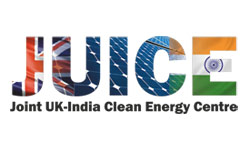 JUICE (Joint UK-India Clean Energy Centre)
JUICE (Joint UK-India Clean Energy Centre)
Funded by EPSRC and Newton Fund, JUICE is a one of a kind virtual energy centre. The centre takes a collaborative approach to research and is composed of both British and Indian researchers. The project addresses issues within solar energy, storage and networks as these are challenges that both nations face.
Project duration:
Exeter contact: Prof Tapas Mallick
Exeter researchers: Dr Senthilarasu Sundaram, Dr Aritra Ghosh and Alice Perrett
Find out more on the Juice website
LEMDEx
The UK government wants to encourage local energy projects, recognising the benefits of
wider community engagement. Many UK energy users, including the collaborators in this
project, want better access to the energy market. These include organisations such as
community energy groups, industrial and commercial energy consumers, distributed
generators, local investors in energy assets and prosumer households. The current
centralised UK energy system and the single energy supplier model is not providing the
engagement opportunities that many of these organisations and individuals desire.
We propose that a Local Energy Market (LEM) approach based on peer-to-peer (P2P)
energy trading would provide greater opportunities for local engagement and better use of
local energy assets. This approach also has potential to deliver a fairer and more scalable
approach for network and system management. Swanbarton Limited has already developed a
technology platform for this purpose and run some encouraging technology trials.
Better management of distributed energy assets, using a LEM approach, will help to reduce
greenhouse gases below the 5th carbon budget.
The LEMDEx project will study the commercial requirements for deploying a Local Energy
Market, including any dependencies on regulatory change, and design a solution. The
project will also design appropriate supporting systems, such as billing integration, and the
overall business model.
Swanbarton Limited will lead the LEMDEx project and work in collaboration with Devon
County Council, Exeter City Council, the University of Exeter and Exeter Community
Energy. This is a six month project funded through the Smart Local Energy Systems: Concepts and Designs component of the Prospering from the Energy Revolution (PFER) Industrial Strategy Challenge Fund (ISCF).
The objective of the LEMDEx project is to design a system that would allow Local Energy
Markets to be piloted in Exeter and Devon in 2020
Exeter contact: Daniel Lash
 Lobster Grower 2
Lobster Grower 2
Lobster Grower 2, funded by InnovateUK and BBSRC and led by the National Lobster Hatchery, is Europe’s largest lobster research project (~£3 million). This collaborative project is establishing the world’s first pilot-scale on-growing site for clawed lobster using a low carbon sea based container culture approach, which requires no feed input. The consortium will investigate and assess the economic, technical, environmental and welfare issues associated with lobster mariculture.
Project duration: 2016 -
Exeter contact: Prof Lars Johanning
Exeter researchers: Prof Dave Hodgson and Dr Helen Smith
Find out more on the Lobster Grower website
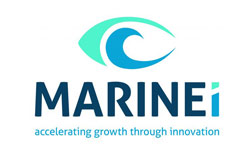 Marine-i
Marine-i
Marine-i is a £9.3m project funded by EU Regional Development Fund and focused on four interconnected themes: marine energy, marine manufacturing, maritime operations and marine environmental technologies, to stimulate and support business-led and market-driven research and development and innovation to drive productivity and the exploitation of new market opportunities. The project is a collaboration between the Universities of Exeter and Plymouth, the Cornwall College Group, Cornwall Marine Network, Cornwall Development Company and the Offshore Renewable Energy Catapult.
Project duration: Mar 2017 - Dec 2019
Exeter contact: Prof Lars Johanning
Exeter Researchers: Giovanni Rinaldi, George Crossley, Dr Tessa Gordelier, & Ben Grigg
Find out more on the Marine-i Cornwall website
 MARINET2
MARINET2
MaRINET2 is an EU Horizon 2020 €10.5 million project which includes 39 organisations, representing some of the top offshore renewable energy testing facilities in Europe and globally. The project depends on strong international ties across Europe and draws on the expertise and participation of 13 countries. Two facilities at Exeter are supported through this infrastructure project: the Falmouth Bay test site (FaBTest) and the Dynamic Marine Component test facility (DMaC).
Project duration: Jan 2017 – Jun 2021
Exeter contact: Prof Lars Johanning
Exeter researchers: Faryal Khalid
Find out more on the Marinet2 website
MERiFIC (Marine Renewable Energy in Far Peripheral and Island Communities)
Funded through the INTERREG IVa programme, this multidisciplinary is focussed on policy in the energy sector and includes analysis of good practice in supporting marine renewable energy technologies in the UK and France, with a view to encouraging cross border learning and the identification of stakeholder needs and engagement with stakeholders, with the goal of opening up opportunities for a wider section of industry in Cornwall and the South West, and in Brittany to access these growing markets. Partners include Cornwall Council, Plymouth University, Cornwall Marine Network in the UK and Ifremer, Technopôle and others in Brittany and Cornwall.
Project duration:
Exeter contact: Dr Peter Connor
Exeter Researchers: Dr Helen Smith & Dr Sam Weller
Find out more on the MERiFIC website
n-CoSH (nano-Structured PCM Composites for Compact Space Heating)
This project, building on individual achievements in nanocomposites and in thermal storage research and adopting a multi-institutional and experimental-modelling approach, aims to develop new PCM-based nanomaterials, that are suitable for high energy density (6 times higher than existing technology), affordable and sustainable PCM-based composite thermal storage device applications.
Project duration:
Exeter contact: Prof Tapas Mallick
Exeter researchers: Prof Yanqiu Zhu, Dr Senthilarasu Sundaram and Dr Asif Tahir
Find out more on the EPSRC website
 NEXT-AG (NEXus Thinking for sustainable AGricultural development in Andean count
NEXT-AG (NEXus Thinking for sustainable AGricultural development in Andean count
A partnership between UK and South American institutions funded by NERC (UK) and CONICYT (Chile), NEXT-AG aims to unpack synergies and trade-offs through a WEFE (Water-Energy-Food-Environment) nexus approach. This will provide policymakers in Peru and Ecuador with the needed evidence base that will allow them to develop new coordinated policies and programmes for increasing resilience and promoting sustainable economic growth in the context of increasing national and global food demand.
Project duration: May 2018 – May 2021
Exeter contact: Dr Xiaoyu Yan
Find out more on the NEXT-AG website
 OPERA
OPERA
The EU Horizon 2020 funded Open Sea Operating Experience to Reduce Wave Energy Cost (OPERA) project aims to contribute to the marine renewable energy knowledge base by providing operational experience and field data from two wave energy installations: a floating Oscillating Water Column (OWC) moored at the BiMEP site in the Bay of Biscay and a shore-based OWC installed at the Mutriku plant. The project consortium comprises 12 industrial and academic partners across Europe.
Project duration: Feb 2016 – Jul 2019
Exeter contact: Dr Philipp Thies
Exeter researchers: Prof Lars Johanning and Dr Dave Parish
Read more on the Opera project website
Power Electronic Converters for Photovoltaic Farm Grid Interface
This project is concerned with investigating the use of alternative power electronic topologies and control systems to interface a sub 5MW solar PV farm to the grid. The aim of our research is to increase the power capability of the DC/AC grid connected inverter, improve efficiency, enhance reliability and reduce cost.
Exeter contact: Dr Mohammad Abusara
Exeter Researchers: Dr Essam Hussain and Hisham Mahmood
Find out more on the Electrical Power Systems website
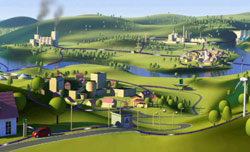 RESCUES (Reliable and Efficient System for Community Energy Solution)
RESCUES (Reliable and Efficient System for Community Energy Solution)
RESCUES is an EPSRC funded UK-India project aimed at developing smart grids (SG) with optimum sensible storage solutions for rural communities across UK and India. In the short to medium term this project will establish and strengthen the collaborations between the leading UK and Indian universities engaged in research in power electronics, renewable energy, power distribution operation and control and energy storage.
Project duration:
Exeter contact: Prof Tapas Mallick
Exeter researchers: Dr Mohammad Abusara and Prof Lars Johanning
Find out more on the Rescues project website
ResIn (Resilient Integrated-Coupled FOW platform design methodology)
This project will enhance the design and development of floating offshore renewables, in particular offshore floating wind as commercially viable electricity infrastructure through a risk based approach allowing to build resilience against extreme events. The project is an interdisciplinary, cross-country collaboration with leading research Universities and industry partners. The project is funded by EPSRC.
Project duration: Jul 2017 – Jul 2020
Exeter contact: Dr Philipp Thies
Exeter researchers: Prof Lars Johanning, Prof Aleksander Pavic and Prof Gavin Tabor
Responsible Sourcing of Rare Earth Elements
This PhD project is part of the NERC-funded SoS RARE project and aims to assess and compare the environmental sustainability of new REE extraction and recovery processes. The aim is to enable the use of rare earth elements in new technologies can continue to expand.
Exeter contact: Robert Pell
Exeter researchers: Dr Xiaoyu Yan
Find out more on Robert Pell’s profile
 SIM4NEXUS
SIM4NEXUS
Water, land, food, energy, and climate are interconnected, comprising a coherent system (the ‘Nexus’), dominated by complexity and feedback. Through the five nexus themes, SIM4NEXUS aims to predict society-wide impacts of resource use and relevant policies on sectors such as agriculture, water, biodiversity and ecosystem services through a model-based analysis.
Exeter contact: Prof Dragan Savic
Exeter researchers: Prof Catherine Mitchell and Dr Lydia Vamvakeridoy-Lyroudia
Find out more on the SIM4NEXUS project website
 Smart Grid Scenarios
Smart Grid Scenarios
This interdisciplinary project involves work with a wide range of key stakeholders to develop scenarios for the possible development of smart grids. Smart grids will be able to intelligently respond to the behaviour and actions of all electrical power users. They offer clear potential to contribute to the UK’s policy goals of a transition to a low-carbon economy. Project partners are the University of Westminster, Cardiff University, Brunel University and the University of Nottingham. The project is funded by the UK Energy Research Centre.
Exeter contact: Dr Peter Connor
Read more on the Smart Grid Scenarios website
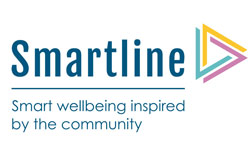 Smartline
Smartline
Smartline is an exciting research project looking at how technology can be used to help us live healthier and happier lives. We are a partnership project led by the University of Exeter with Coastline Housing Ltd, Cornwall Council and Volunteer Cornwall and funded by EU Regional development Fund.
Exeter contact: Dr Tim Taylor
Exeter researchers: Dr Tamaryn Menneer, Laurie Magowan, Darren Stevens, Dr Krisztina Timko, Catherine Read and Chloe Bines
Find out more on the Smartline project website
 Solar fuel
Solar fuel
This project focuses on the fundamental material challenges which hinder cost effective solar fuel production. We are designing new materials with suitable bandgap, bandedge positions, efficient charge separation and transport properties, stable and cost-effective fabrication for spontaneous water splitting and CO2 photoreduction for solar fuel generation.
Exeter contact: Dr Asif Tahir
Find out more on the Solar Fuel website
Spatiotemporal dynamical Life Cycle Assessment (LCA) methods
This project is developing new methodologies to address some of the major limitations of the established LCA tools. This includes making LCA more temporally and spatially explicit as well as exploring the propagation of uncertainties in LCA models.
Exeter contact: Atta Ajayebi
Exeter researchers: Dr Xaioyu Yan
 Stepping Up
Stepping Up
Stepping Up is a 3-year, EPSRC funded collaboration between sustainability researchers at universities and research institutes across the UK. The project is exploring the potential of innovation to deliver benefits across the water-energy-food nexus, and developing our understand of the implications and challenges of achieving transformational change across scales.
Project duration: Oct 2015 – Mar 2019
Exeter contact: Dr Iain Soutar
Exeter researchers: Prof Catherine Mitchell
Find out more on the Stepping Up website
SUNTRAP (Scalable Solar Thermoelectrics and Photovoltaics)
This project aims at developing a household system that harvests energy from the sun, producing both electrical and thermal energy for direct use or storage. In addition, the project seeks to drastically reduce the cost of large scale exploitation of solar energy.
Project duration:
Exeter contact: Prof Tapas Mallick
Exeter researchers: Dr Hasan Baig
Find out more on the SUNTRAP website
 TEVI
TEVI
TEVI is an ERDF-funded £3.02m partnership between the University of Exeter, Cornwall Council, Cornwall Development Company and Cornwall Wildlife Trust. It will help businesses across Cornwall apply the principles and tools of both environmental growth and the circular economy in order to improve their environmental performance and increase their profitability. The role of our group in this project is to collect and analyse data on resource use and waste generation from businesses that will feed into the development of a toolkit.
Project duration: Feb 2018 – Jan 2021
Exeter contact: Prof Kevin Gaston
Exeter researchers: Dr Ilya Maclean, Dr Jonathan Mosedale and Dr Xiaoyu Yan
Find out more on the TEVI website
 UKCMER (United Kingdom Centre for Marine Energy Research)
UKCMER (United Kingdom Centre for Marine Energy Research)
The United Kingdom Centre for Marine Renewable Energy (UKCMER) is a virtual centre, funded under RCUK's Energy Programme's SUPERGEN initiative. UKCMER seeks to coordinate research in renewable electricity generation using the power of the waves, tidal currents and floating wind turbines. Core partners in the initiative are the University of Edinburgh, Cranfield University, the University of Exeter, University of Strathclyde and Swansea University.
Project duration: Dec 2016 – May 2019
Exeter contact: Dr Philipp Thies
Exeter researchers: Prof Lars Johanning
Find out more on the UKCMER website
Understanding the spatial and temporal dynamics of public attitudes and community responses to shale gas: an integrated approach
Funded by NERC, This project takes a multi-scalar approach with a particular interest in the evolution of public attitudes at the societal level, and the relations between stakeholder and community engagement around particular shale gas development projects at the local level.
Exeter contact: Prof Patrick Devine-Wright
Find out more in the University of Exeter’s website
 WEFWEBS
WEFWEBS
Funded by the EPSRC and in partnership various UK universities and the Science and technology Facilities Council, WEFWEBS addresses the challenges of understanding and hence identifying the dynamic, interlinked inter-dependencies across the nexus networks which are physical (water, waste, energy and food), social and political (individual, regulatory and policy), ecological and digital at multiple, nested scales (local, regional and national) and temporally. This will improve our understanding and hence ability to effectively predict and manage demand for food, energy and water.
Exeter contact: Dr Xiaoyu Yan
Find out more on the WEFWEBs website
 Welfare, Employment and Energy Demand
Welfare, Employment and Energy Demand
Welfare, Employment and Energy Demand’ is a research project that is part of the UK Dynamics of Energy, Mobility, and Demand Centre. The project seeks to build understanding of the implications of welfare and employment policy for energy demand, examining where tensions and opportunities might arise in addressing different demand related issues, such as energy poverty and demand reduction.
Exeter contact: Dr Catherine Butler
 Zinc-Nickel Redox Flow Battery for Energy Storage (RFB)
Zinc-Nickel Redox Flow Battery for Energy Storage (RFB)
This current research in this area is focused on the development of a membrane-free RFB system utilising a Zinc negative electrode and a Nickel positive electrode. In partnership with Imperial College London and the University of Warwick, the EPSRC-funded research project Zinc-Nickel Redox Flow Battery for Energy Storage aims to improve the efficiency and performance of this system. The focus of the project is on the control of electrodeposited zinc morphology, the structure and material of the nickel electrode, optimisation of electrolyte flow regime and overall cell and battery design.
Project duration:
Exeter contact: David Trudgeon
Exeter researchers: Dr Xiaohong Li and Prof Tapas Mallick
Find out more on the UKRI website

